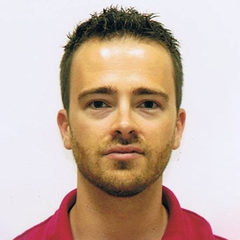IS 615: Enterprise Cloud Design and Development
Contents
Enterprise software is expected to serve a plethora of customer needs from different industries in an integrated and seamless way. Traditionally, the market leaders provided integrated enterprise resource planning (ERP) solutions as a suite of business applications that are being operated by their customers on-premises or hosted as isolated instances by third party providers. Today, customers and end users expect fully cloud-based provisioning so that business models leaving the operations and related costs with the vendors of enterprise software. Hence, established software vendors have to rethink and improve the way they organize development in terms of skills and organizational design, development processes and methodology, business models as well as tools and technologies needed. This academic lecture includes agile software development practices including multi-team coordination and planning as well as empirical process control and traceability management. Moreover, lean thinking combined with Design Thinking and related practices are increasingly adopted and intertwined in the software industry. The goal of this module is to convey approaches from research and industry experience together with practical application based on concrete enterprise cloud software challenges including both, lecture, and workshop formats.
A combination with IS 613 as related term project applying the content is highly recommended.
Learning outcomes
After completing the class, students will be able to:
- Understand specific issues and challenges of cloud-based enterprise software;
- Understand basic issues and challenges in enterprise software development;
- Understand and apply large-scale agile development based on lean principles;
- Understand the principles of multi-team coordination and planning as well as
- Understand empirical process control and traceability management in enterprise software development;
- Understand and apply Design Thinking and related innovation practices;
- Understand and evaluate business models for enterprise software solutions;
- Understand and apply how to bring all of this together in enterprise reality;
- Understand and evaluate state-of-the-art software engineering methods;
- Understand and explain particular success strategies recommended by practitioners.
Necessary prerequisites
–
Recommended prerequisites
attendance of IS 613 in the same semester is recommended
| Forms of teaching and learning | Contact hours | Independent study time |
|---|---|---|
| Lecture | 2 SWS | 15 SWS |
| ECTS credits | 6 |
| Graded | yes |
| Workload | 180h |
| Language | English |
| Form of assessment | Written exam (60 min, 80%), case study (20%) |
| Restricted admission | yes |
| Further information | Chair’s Website (www.bwl.uni-mannheim.de/heinzl) |
Examiner Performing lecturer |  | Prof. Dr. Tobias Schimmer Prof. Dr. Tobias Schimmer und Dr. Philipp Hoffmann |
| Frequency of offering | Fall semester |
| Duration of module | 1 semester |
| Range of application | M.Sc. MMM, M.Sc. Bus. Edu., M.Sc. Econ., M.Sc. Bus. Inf. |
| Preliminary course work | – |
| Program-specific Competency Goals | CG 1, CG 2 |
| Literature | Team and Organization Design:
|
| Course outline | The course will be held in workshop format: 1) Kick-off event (90 min): 2) Workshop Day 1 (full day): Lean Development and Agile Engineering. 3) Workshop Day 2 (full day): Design Thinking & Product Design 4) Workshop Day 3 (full day): Business Innovation 5) Guest Lecture (90 min) |